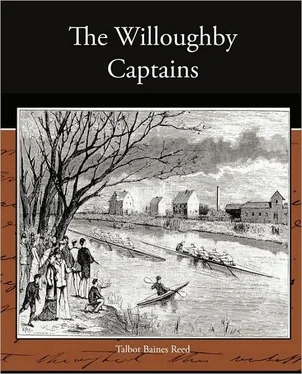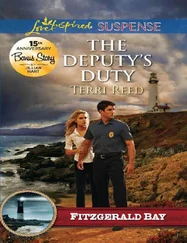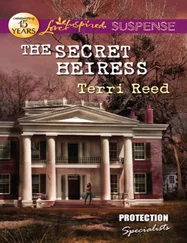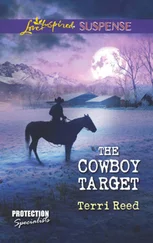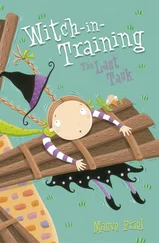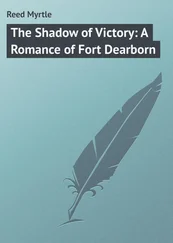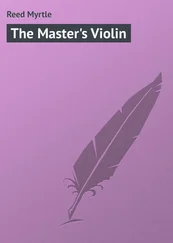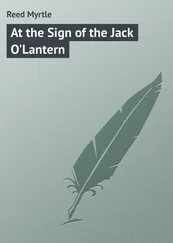“Have you found out who did it?” asked Bloomfield.
“No,” said Riddell, “and we can’t even guess.”
“But what we came for specially,” broke in Fairbairn at this point, “was to say we are quite ready to row you again any day you like.”
There was a touch of defiance in the tone of the schoolhouse stroke which was particularly irritating to the Parrett’s boys.
“Of course, we would row you—” began Bloomfield.
“But we don’t mean to,” broke in Game, “till this ugly business is cleared up.”
“What do you mean?” asked Fairbairn.
“You know what we mean,” said Game, warmly. “As soon as you find out who cut our line we’ll go out on the river again.”
“Yes; we don’t mean to row you till that’s done,” said Ashley.
“How on earth are we to find out who cut your line any more than you?” said Fairbairn, losing his temper.
“There’s no doubt he must be a schoolhouse fellow,” said Bloomfield, who but for his friends would have been disposed to accept the challenge.
“I’m afraid he is,” said Riddell.
“Well, I won’t row again till we know who he is,” repeated Ashley.
“Do you suppose we know who he is?” demanded Fairbairn.
“You’re the proper people to find out, that’s all I know,” said Ashley.
“Then you mean to say you won’t row again?” asked Fairbairn.
“No, if it comes to that,” said Bloomfield.
“Why,” said Game, “the same thing might happen again.”
“If you’d looked to your lines before you started,” said Fairbairn, hotly, “it wouldn’t have happened.”
“We shall certainly make a point of looking at them again when next we row you,” said Ashley, with a sneer.
Fairbairn seemed inclined to retort, but a look from Riddell deterred him.
“Then you won’t row again?” he repeated once more.
“No.”
“Then we claim to-day’s race,” said Fairbairn.
“You can claim what you like,” said Game.
“And our boat remains at the head of the river.”
“It doesn’t matter to us where it remains,” replied Ashley. “You may think what you like and we’ll think what we like.”
It was evidently useless to attempt further parley, and the two schoolhouse boys accordingly retired, bitterly disappointed to be thwarted of their only chance of righting themselves and their house in the eyes of Willoughby.
It soon got to be known there was to be no second race, and, as usual, all sorts of stories accompanied the rumour. The enemies of the schoolhouse said openly that they had refused Bloomfield’s demand for a new race, and intended to stick to their ill-gotten laurels in spite of everybody. On the other side it was as freely asserted that Parrett’s had funked it; and some went even so far to hint that the snapping of the rope happened fortunately for the boat, and saved it under cover of an accident from the disgrace of a defeat. The few who knew the real story considered Bloomfield was quite right in refusing another race till the culprit of the first should be brought to justice.
But the two fellows on whom the announcement fell most severely were Gilks and Silk. For if the race of that day was to stand, the schoolhouse boat had definitely won the race, and consequently they were both losers to a considerable extent.
They had counted almost certainly on a second race, but now that this had been decided against, their wrath and dismay knew no bounds. They spent the evening in vituperations and angry discussion, and ended it in what was very little short of a downright quarrel. Indeed, if young Wyndham had not opportunely arrived on the scene shortly before bedtime and created a diversion, the quarrel might have come to blows.
Wyndham burst into the room suddenly.
“Has either of you seen my knife?” he enquired; “I’ve lost it.”
“Have you?” inquired Silk.
“Yes; I fancy I left it here last night. I say, have you heard Parrett’s won’t accept a new race?”
“I wonder why?” asked Silk.
“Because they say they won’t have out their boat again till the fellow’s found who cut the lines.”
“Well, I don’t blame them — do you, Gilks?” said Silk. “I suppose there’s no idea who he is?”
“Not a bit,” said Wyndham; “I wish to goodness there was. Some fool, I expect, who’s been betting against Parrett’s.”
“I could show you a fool who’s been betting on Parrett’s,” said Silk, “and who’s decidedly up a tree now! I say, young ’un, I suppose you couldn’t lend me a sov. till the end of the term?”
“I’ve only got half-a-sov. in the world,” said Wyndham.
“Well, I’ll try and make that do, thanks,” said Silk.
Wyndham pulled out his purse rather ruefully and handed him the coin.
“Mind you let me have it back, please,” he said, “as I’m saving up for a racket. And I say,” added he, leaving, “if you do come across my knife, let’s have it, will you?”
Chapter Sixteen
Bosher, his Diary
Probably no two boys in all Willoughby were more excited over the result of the famous boat-race than Parson and his dear friend Telson. And it is hardly necessary to state that this agitation arose from totally conflicting reasons.
Parson’s indignation found solace in the most sweeping and vehement invectives his vocabulary could afford against the unknown author of the dastardly outrage upon his rudder-line. By an easy effort of imagination he included the whole schoolhouse, root and branch, in his anathemas, and by a very trifling additional effort he discovered that the objects of his censure were guilty, every one of them, not only of this particular crime, but of every crime in the Newgate Calendar, from picking pockets to murder. He fully agreed with the decision of his chiefs to have nothing more to do with such a graceless crew till the injury was atoned for; and meanwhile he felt himself at perfect liberty — nay, it was his painful duty — to insult, abuse, and maltreat, as occasion offered, every one unlucky enough to wear the schoolhouse ribbon on his cap.
This being the case, it may be imagined his friend Telson (who, by the way, had barely recovered from the shock of Brown’s party) found himself in a very delicate position. For in the whole of his code of honour two points were paramount with him. One was loyalty to the schoolhouse, the other was loyalty to Parson. How these two duties could be carried out now, at one and the same time, was a source of much anxiety to the perplexed Augustus.
He too was as indignant about the whole affair as his friend. But his wrath was aimed first of all against those who dared to insinuate that any schoolhouse boy could have been guilty of the evil deed, and next against the Parretts’ authorities for refusing Riddell’s and Fairbairn’s offer of a new race.
He and his friend had a long and painful discussion of the whole question an evening or two later in the study of the latter.
“It’s all very well,” said he, “to say it’s a schoolhouse chap has done it—”
“I tell you a schoolhouse chap must have done it,” said Parson. “Who else would do such a dirty trick?”
“I’ll fight you, old man, if you go on like that,” observed the schoolhouse fag.
“Oh, beg pardon,” said Parson, apologetically. “I mean who else could have done it, you know?”
“A Welcher might,” suggested Telson.
“What would be the good to him? They hadn’t a boat. Besides, they all go against Riddell, don’t they?”
“Well, I mean to say,” said Telson, falling back on to the next grievance, “your fellows ought to row us again. We’d have rowed you again like a shot if our line had smashed. We don’t funk you.”
Читать дальше
